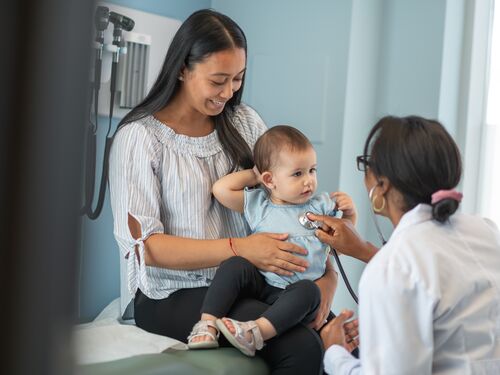Methods to Track Health Care Worker Deaths, Burnout from COVID-19 Examined in New Rapid Response to Government
News Release
By Stephanie Miceli
Last update December 10, 2020
WASHINGTON — A new rapid expert consultation from the National Academies of Sciences, Engineering, and Medicine examines methods to better track and evaluate deaths and mental health consequences among health care workers (HCWs) due to COVID-19. The document considers HCW deaths due to occupational exposure to the virus and deaths by suicide that could reasonably be attributed to the fatigue, stress, and burnout exacerbated by COVID-19. It also examines universal masking and personal protective equipment (PPE) strategies, and other ways to support health care worker safety and well-being during the pandemic.
Tracking the number of COVID-19 deaths among HCWs is challenging for a number of reasons, the consultation says. The Occupational Safety and Health Administration (OSHA) does not count deaths specifically caused by occupationally acquired infection. Some states do not report COVID-19 deaths by profession, while others only report data on health care workers in certain types of settings (for example, hospitals but not nursing homes). Further, it may not be possible to trace whether the HCW contracted COVID-19 at work or in the community.
Using lessons from a September 2020 National Academies report on tracking disaster-related mortality, the consultation outlines a potential national framework for collecting, recording, and reporting HCW mortality and morbidity data associated with COVID-19. Measures could include specific professions of the deceased, relevant demographic data, the availability of PPE at individuals’ workplaces, as well as evidence that the infection was acquired at work.
As with mortality due to COVID-19, there are currently no national systems or reporting standards for morbidity measures among HCWs, including mental health status. The implementation of a national epidemiologic tracking program could help measure HCW well-being and psychological effects, and report on the outcomes of interventions, says the consultation.
It also notes that universal mask wearing and access to appropriate PPE not only support the physical safety of health care workers but also their well-being. Since the start of the pandemic, multiple studies have consistently shown that access to appropriate PPE benefits the mental health of the health care workforce. This is reflected in improved job satisfaction, increased feelings of confidence and safety, and diminished fear of acquiring COVID-19 and passing it on to loved ones.
The National Academies’ Standing Committee on Emerging Infectious Diseases and 21st Century Health Threats, assembled in early March at the request of the White House Office of Science and Technology Policy and the U.S. Department of Health and Human Services’ Office of the Assistant Secretary for Preparedness and Response in response to the COVID-19 outbreak, has been providing rapid expert consultations on several topics, such as social distancing, severe illness in young adults, and crisis standards of care.
The National Academies are private, nonprofit institutions that provide independent, objective analysis and advice to the nation to solve complex problems and inform public policy decisions related to science, technology, and medicine. They operate under an 1863 congressional charter to the National Academy of Sciences, signed by President Lincoln.
Contact:
Stephanie Miceli, Media Relations Officer
Office of News and Public Information
202-334-2138; e-mail news@nas.edu
Featured Publication
Rapid Expert Consultation on Understanding Causes of Health Care Worker Deaths Due to the COVID-19 Pandemic (December 10, 2020)
Rapid Expert Consultation
·2020
The COVID-19 pandemic has created both acute and chronic stresses on the health care system and on health care personnel nationwide. At present, the nation lacks a uniform system to collect, collate, and report illnesses and deaths among health care workers due to COVID-19, and only a few studies r...
View details
More like this
Discover
Events
Right Now & Next Up
Stay in the loop with can’t-miss sessions, live events, and activities happening over the next two days.
NAS Building Guided Tours Available!
Participate in a one-hour guided tour of the historic National Academy of Sciences building, highlighting its distinctive architecture, renowned artwork, and the intersection of art, science, and culture.

